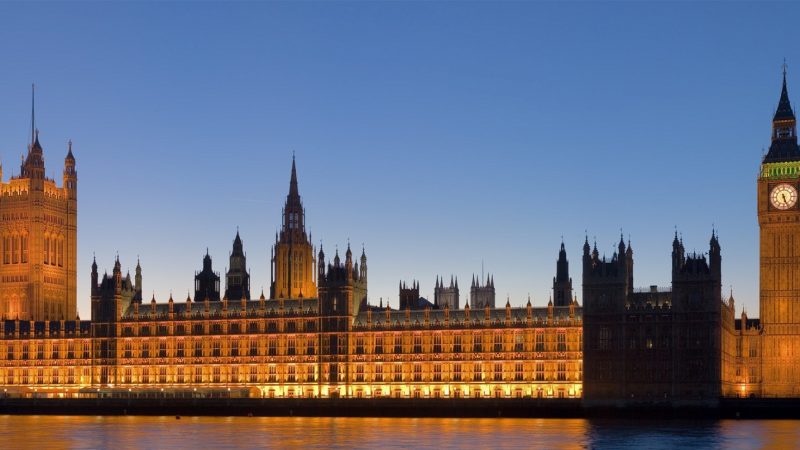Roz Savage MP argues that our resurgence will come from strong, empowered, connected communities

For decades, politicians of all parties have promised to push power out of Westminster and closer to the people. Yet the UK remains one of the most centralised democracies in the developed world. Local government raises just 5 per cent of all tax revenue, compared with an OECD average of around 30 percent. Decisions that shape our daily lives – housing, transport, planning, energy, health, skills and more – are still made by ministers and civil servants who may never have set foot in the communities affected by them.
As a Lib Dem candidate, I campaigned on a belief that Britain needs democratic and civic renewal. My first 16 months in Parliament have only strengthened that belief. If we want a healthier politics and a more resilient society, we have to take decentralisation seriously. And that means real power at the grassroots, not a Devolution Bill that concentrates authority in the hands of a couple of dozen mayors.
Resilience grows from the ground up
Over-centralisation does not create strength. It creates brittleness. Systems that depend on a distant centre fail under pressure because they cannot adapt to local realities.
Covid revealed this starkly. Local public health teams reached contacts far more effectively than the central Test and Trace system because they knew their communities. Meanwhile, more than 4,000 mutual aid groups involving over 3 million volunteers mobilised within weeks. People rediscovered the power of proximity – of neighbours helping neighbours.
But that civic energy faded once the pandemic passed – not because people stopped caring, but because the structures needed to sustain it, like empowered councils, community ownership and stable funding, were too weak.
Centralisation fosters helplessness – community action restores agency
When decisions flow only from the top, people begin to feel that their efforts do not matter. Over time this breeds a quiet, national passivity – a kind of learned helplessness. People disengage not because they lack interest, but because the system teaches them their involvement is irrelevant.
Decentralisation reverses this. When citizens can genuinely influence their surroundings, agency returns. People feel they matter; their contribution shapes the future of the place they love.
As Taiwan’s former digital minister, Audrey Tang, has said: “It’s not about whether people trust the government – it’s about whether the government trusts the people.” Trust is the soil in which agency grows. Without it, nothing else takes root.
People also identify deeply with the uniqueness of their place. When they are given meaningful tools to care for it, they show up. And when they show up alongside neighbours from different backgrounds, something else happens: the “otherness” that fuels prejudice begins to dissolve.
This is not romantic idealism. Decades of research show that cooperative, practical interaction reduces racism, anti-immigrant sentiment and anti-LGBTQ+ prejudice. When communities work together on a shared mission – running a garden, organising a street event, improving a park – diversity becomes normal and cooperation becomes the defining experience. Neighbours who once seemed “other” become trusted teammates. Practical solidarity dismantles prejudice far more effectively than abstract argument.
Gloucestershire’s moment of change
Half of my constituency lies in Gloucestershire, where local government reorganisation will remove district councils. This risks widening the gap between people and decision makers. Yet it also creates an opportunity to reinvigorate town and parish councils – often the most connected and grounded institutions we have.
Some are already thriving. Cirencester Town Council shows how active, empowered local government can measurably improve quality of life. If centralisation has caused many of our problems, then strengthening these hyper-local democratic bodies must be part of the solution.
A national framework that enables local action
For decentralisation to be meaningful, central government must provide the legislation, long-term funding and durable rights that allow communities to plan with confidence. The We’re Right Here campaign has been leading the call for this approach, championing community ownership, predictable investment and genuine local autonomy. Their mission reflects a simple truth: people know their areas better than Whitehall ever can.
National government should not micromanage communities; it should enable them. What we need is a supportive legal and financial framework within which local creativity, knowledge and commitment can thrive.
Renewing Britain from the bottom up
Decentralisation is not an abstract constitutional argument. It is about resilience, belonging and the everyday quality of life. It is about ensuring people do not feel overlooked or irrelevant, and that diversity becomes part of a shared mission to help communities prosper.
Britain will not be renewed from the top – too much trust in authority has been lost. Our resurgence will come from strong, empowered, connected communities – but only if government finally trusts people with the power to shape the society they want to build.
Roz Savage is the Liberal Democrat MP for South Cotswolds
Image credit: Diliff – Creative Commons
Left Foot Forward doesn’t have the backing of big business or billionaires. We rely on the kind and generous support of ordinary people like you.
You can support hard-hitting journalism that holds the right to account, provides a forum for debate among progressives, and covers the stories the rest of the media ignore. Donate today.
leftfootforward.org (Article Sourced Website)
#Westminsters #grip #holds #Britain #Community #power #part #renewal
